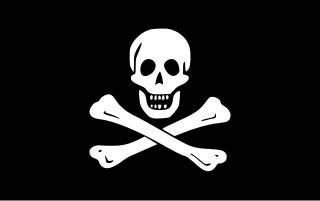
Piracy is an act of robbery or criminal violence by ship or boat-borne attackers upon another ship or a coastal area, typically with the goal of stealing cargo and other valuable goods. Those who conduct acts of piracy are called pirates, and vessels used for piracy are called pirate ships. The earliest documented instances of piracy were in the 14th century BC, when the Sea Peoples, a group of ocean raiders, attacked the ships of the Aegean and Mediterranean civilisations. Narrow channels which funnel shipping into predictable routes have long created opportunities for piracy, as well as for privateering and commerce raiding.
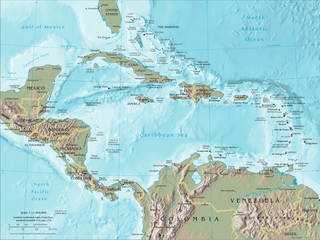
The era of piracy in the Caribbean began in the 1500s and phased out in the 1830s after the navies of the nations of Western Europe and North America with colonies in the Caribbean began hunting and prosecuting pirates. The period during which pirates were most successful was from the 1650s to the 1730s. Piracy flourished in the Caribbean because of the existence of pirate seaports such as Port Royal in Jamaica, Tortuga in Haiti, and Nassau in the Bahamas. Piracy in the Caribbean was part of a larger historical phenomenon of piracy, as it existed close to major trade and exploration routes in almost all the five oceans.

The Golden Age of Piracy is a common designation for the period between the 1650s and the 1730s, when maritime piracy was a significant factor in the histories of the North Atlantic and Indian Oceans.

The Piracy Act 1698 was an Act of the Parliament of England passed in the eleventh year of King William III. The main purpose behind the statute was to make some corrections to the Offences at Sea Act 1536.

Piracy in the Strait of Malacca has long been a threat to ship owners and the mariners who ply the 900 km-long sea lane. In recent years, coordinated patrols by Indonesia, Malaysia, Thailand, and Singapore along with increased security on vessels have sparked a sharp downturn in piracy.

Piracy in the British Virgin Islands was prevalent during the so-called "Golden Age of Piracy", mainly during the years of 1690-1730. Privateering was also widely practised in the jurisdiction throughout frequent colonial wars, not least by emancipated slaves who, with in preference to back-breaking labour in the fields for pitiful wages, took enormous risks to capture fortunes on the seas with the sanction of the Crown. In 1808, Patrick Colquhoun, a prize agent for the Territory spoke of "the most daring outrages which are frequently committed by people of colour."

Although the majority of pirates in history have been men, there are around a hundred known examples of female pirates, about forty of whom were active in the Golden Age of Piracy. Some women have been pirate captains and some have commanded entire pirate fleets. Among the most powerful pirate women were figures such as Zheng Yi Sao (1775–1844) and Huang Bamei (1906–1982), both of whom led tens of thousands of pirates.

An Act to protect the commerce of the United States and punish the crime of piracy is an 1819 United States federal statute against piracy, amended in 1820 to declare participating in the slave trade or robbing a ship to be piracy as well. The last execution for piracy in the United States was of slave trader Nathaniel Gordon in 1862 in New York, under the amended act.
Piracy off the coast of Somalia occurs in the Gulf of Aden, Guardafui Channel, and Somali Sea, in Somali territorial waters and other surrounding places and has a long troubled history with different perspectives from different communities. It was initially a threat to international fishing vessels during the early 2000s, only to rapidly escalate and expand to international shipping during the War in Somalia (2006–2009).

Copyright infringement is the use of works protected by copyright without permission for a usage where such permission is required, thereby infringing certain exclusive rights granted to the copyright holder, such as the right to reproduce, distribute, display or perform the protected work, or to produce derivative works. The copyright holder is usually the work's creator, or a publisher or other business to whom copyright has been assigned. Copyright holders routinely invoke legal and technological measures to prevent and penalize copyright infringement.
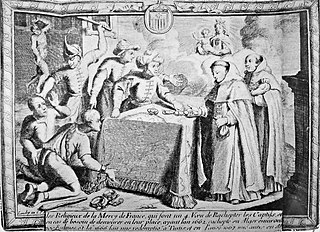
Anglo-Turkish piracy or the Anglo-Barbary piracy was the collaboration between Barbary pirates and English pirates against Catholic shipping during the 17th century.

Piracy in the ancient Mediterranean dates back at least as far as the Bronze Age. The roots of the word "piracy" come from the ancient Greek πειράομαι, or peiráomai, meaning "attempt". This morphed into πειρατής, or peiratēs, meaning "brigand," and from that to the Latin pirata, where the modern English word pirate originated. According to the classical historian Janice Gabbert, "The eastern Mediterranean has been plagued by piracy since the first dawn of history." The Bronze Age marked the earliest documented wave of piracy, as it is difficult to differentiate piracy from trade during earlier periods.
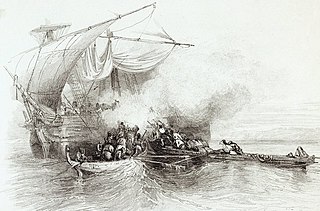
Aegean Sea anti-piracy operations began in 1825 when the United States government dispatched a squadron of ships to suppress Greek piracy in the Aegean Sea. The Greek civil wars of 1824–1825 and the decline of the Hellenic Navy made the Aegean quickly become a haven for pirates who sometimes doubled as privateers.

Piracy in the 21st century has taken place in a number of waters around the world, including the Gulf of Guinea, Strait of Malacca, Sulu and Celebes Seas, Indian Ocean, and Falcon Lake.
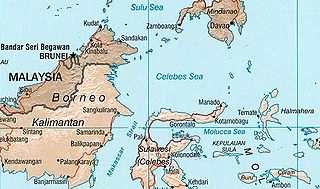
The Sulu and Celebes Seas, a semi-enclosed sea area and porous region that covers an area of space around 1 million square kilometres, have been subject to illegal maritime activities since the pre-colonial era and continue to pose a maritime security threat to bordering nations up to this day. While piracy has long been identified as an ubiquitous challenge, being historically interwoven with the region, recent incidents also include other types of maritime crimes such as kidnapping and the trafficking of humans, arms and drugs. Attacks mostly classify as 'armed robbery against ships' according to the United Nations Convention on the Law of the Sea as they occur in maritime zones that lie under the sovereignty of a coastal state. Incidents in the Sulu and Celebes Seas specifically involve the abduction of crew members. Since March 2016, the Information Sharing Centre (ISC) of the Regional Cooperation Agreement on Combating Piracy and Armed Robbery against Ships in Asia (ReCAAP) reports a total of 86 abductions, leading to the issue of a warning for ships transpassing the area.

The Atlantic World refers to the period between European colonization of the Americas (1492-) and the early nineteenth century. Piracy became prevalent in this era because of the difficulty of policing this vast area, the limited state control over many parts of the coast, and the competition between different European powers. The best known pirates of this era are the Golden Age Pirates who roamed the seas off the coasts of North America, Africa, and the Caribbean.

The Republic of Pirates was the base and stronghold of a loose confederacy run by privateers-turned-pirates in Nassau on New Providence island in the Bahamas during the Golden Age of Piracy for about twelve years from 1706 until 1718. While it was not a republic in a formal sense, it was governed by an informal pirate code, which dictated that the crews of the Republic would vote on the leadership of their ships and treat other pirate crews with civility. The term comes from Colin Woodard's book of the same name.

Piracy in the Persian Gulf describes the naval warfare that was prevalent until the 19th century and occurred between seafaring Arabs in Eastern Arabia and the British Empire in the Persian Gulf. It was perceived as one of the primary threats to global maritime trade routes, particularly those with significance to British India and Iraq. Many of the most notable historical instances of these raids were conducted by the Al Qasimi tribe. This led to the British mounting the Persian Gulf campaign of 1809, a major maritime action launched by the Royal Navy to bombard Ras Al Khaimah, Lingeh and other Al Qasimi ports. The current ruler of Sharjah, Sultan bin Muhammad Al Qasimi argues in his book The Myth of Piracy in the Gulf that the allegations of piracy were exaggerated by the East India Company to cut off untaxed trade routes between the Middle East and India.
International piracy law is international law that is meant to protect against piracy. Throughout history and legal precedents, pirates have been defined as hostis humani generis, Latin for "the enemy of all mankind". The United Nations has codified much of the law in the United Nations Convention on the Law of the Sea (UNCLOS), which defines different types of piracy and ways to combat it.

















